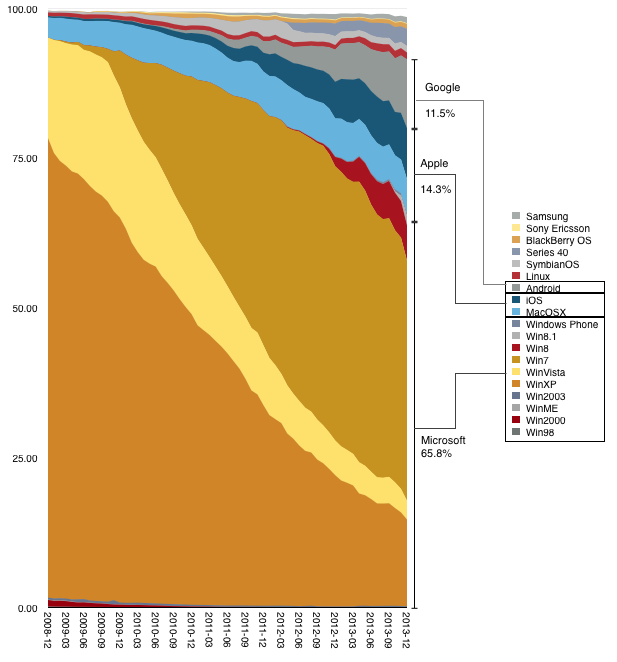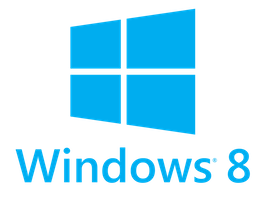Would Windows 8 Have Succeeded As Two Versions?
When I’m asked about “What if” scenarios, it often turns to think of the supposed failure that is Windows 8 (and 8.1, to a degree). Many users and technology enthusiasts alike have theories as to how the failure of Windows 8 in 2012, could have succeeded if only Microsoft did something different. From creating different versions to allowing the Start Menu from boot to an alternative patch of Windows Phone 7. The more intriguing question, however, is if Windows 8 would have succeeded if Microsoft branched its “Metro” and “Classic” interfaces into two distinct products.
The most important question is: Can we call Windows 8 a failure? based on most metrics, the uptake on Windows 8.1 has been nowhere near that of its predecessor, Windows 7. For more obscure confirmation, you’ll see that a great number of people buy computers and actively avoid 8 over that of 7’s “Classic” interface. Also, not directly to blame, but sales of Windows-based PCs are also dropping because of a huge shift in the market. Given these forces and genuine distaste for the “Metro” user interface, Windows 8 has really struggled.

The above chart from the great Horace Dediu illustrates browser share by the platform. Since it’s fair to say most of today’s operating systems are used for some form of browsing; This chart gives us another look at how well (or poorly) platforms are doing. Windows 8 and 8.1 are a very small portion of the larger picture. Based on what we know it’s fair to say that Windows 8 has been a mild failure [1].
The one idea floated often posits that Windows 8 would have been more successful if it were split into two different versions; A tablet version with the “Metro” interface, and a desktop version with the “Classic” interface. What’s more, we could take this idea and extend it to the Windows Phone (WP7) product. Would Windows 8 be a bigger success had they extended WP7 to tablets and created a “Metro” style interface only with no desktop?
My sense is yes, and here’s why:
1. A bump for Windows Phone – Microsoft’s phone market share has been hovering at about 3% and may have actually benefited had that operating system gained some visibility and synergy by way of tablets. One sign of this idea is the ease of using Airdrop between iOS tablets and iOS phones. The phone and tablet are complementary, where the desktop and phone/tablet appear less so.
2. Less active avoidance – I see this from customers. People have now learned to ask for Windows 7 on a new computer, much like they had to with Windows XP and Vista. This active avoidance of an operating system spans all markets and likely hurts Microsoft. People appear predisposed to hate the “Metro” interface, or at least fear it.
3. Compartmentalized failure – Some say that two failing versions of Windows 8 would have been roughly equal to the current single version of Windows 8 failing. I don’t buy it. The failure of the “Metro’ interface on tablets (and perhaps phones) would have been relegated to the phones. Windows 8’s “Classic” interface would have been enhanced [2], but not infected by the larger failure of “Metro”. What’s more, the current difficulty and confusion around the two interfaces would not have existed. This may have increased Microsoft’s phone market share, while the fall in PC sales might have been slowed.
4. More platform clarity – If I were developing for Microsoft’s platforms, I’d think they had an identity crisis. The “Classic” interface applications make up most of the market and continue to thrive. For burgeoning “Metro” apps to grow in a store, Microsoft may have been smarter to let that happen away from the “Classic” application’s domain. Imagine an enterprise that may have a “Metro” Windows CMS, but a “Classic” application for accounting. Both of these development styles contend with each other. The user was never going to enjoy having to fight with that.
Many in the industry are watching the success of Chromebooks and any clear trends at the upcoming CES conference may affect the Windows platform. My feeling is that it’s too late to stop the failing fortunes of Microsoft’s flagship operating system. Microsoft needs a major shift in focus – from that of iterating an operating system that has peaked – to that of exploiting the platform’s potential. Imagine Microsoft were to open-source Windows XP Imagine if they were to shift from active development on the next version of Windows into two distinct groups; One group developing solely for Metro mobile versions and the second group dedicated to security and updates on all existing Windows versions.


